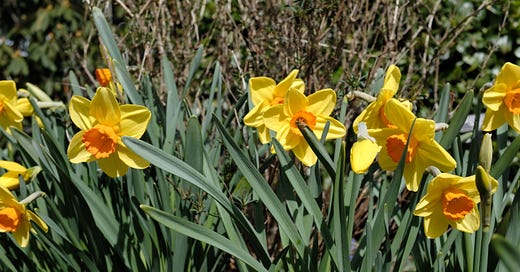False spring is a period of unseasonable warmth in mid- to late-winter that tricks plants into starting to bud, followed by a hard freeze, which can kill or damage the newly exposed leaf and flower buds. If this happens in an orchard, it can ruin an entire year’s harvest of peaches, cherries, or plums, or kill the trees outright.
But in the popular imagi…
Keep reading with a 7-day free trial
Subscribe to Pinch of Dirt to keep reading this post and get 7 days of free access to the full post archives.



